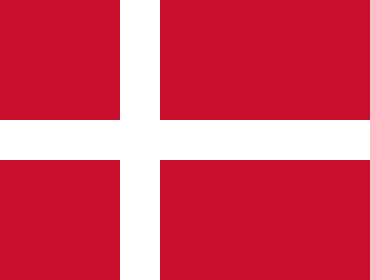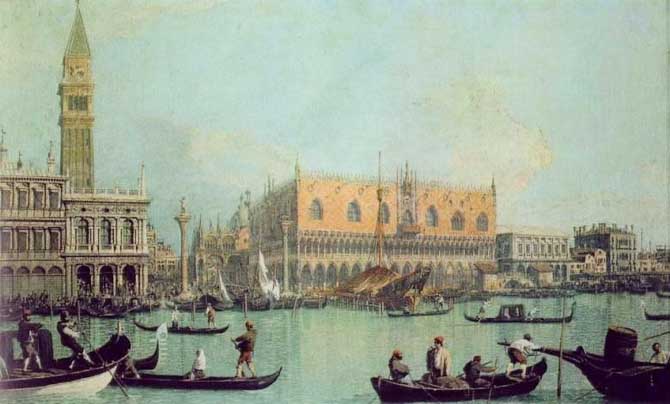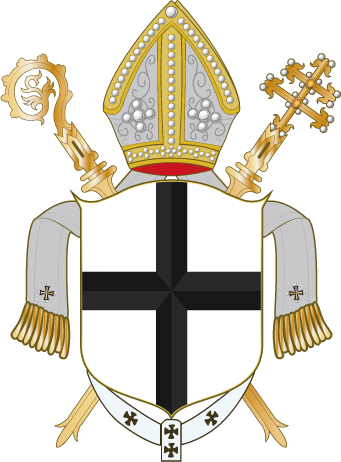Major events of 1790
Europe
Money is spent in Great Britain on government celebrations, though it is unclear what is being celebrated. Particularly lavish parties in London contrast poorly with the news coming from across the channel. In rural areas free drink handed out to the people certainly boosts the popularity of individual politicians, though it does little to promote national unity.
Partially due to the previously mentioned spending, which the opposition decries as bribery, the 1790 election return a government majority, with William Pitt the Younger remaining as Prime Minister. Using his expanded power the Prime Minister shifts the administrative reform begun last year to include the government. Bypassing some of the more senior members of his own coalition Pitt choses a group of extremely capable administrators to fill key posts, though this wins him few friends among those who were bypassed for the appointments.
Despite the fact that the clergy voted to join the Third Estate in creating the National Assembly and thus legitimized that body in 1789, by 1790 the National Assembly adopts a very anti-clerical stance. First the right of the Church to collect a tithe is abolished, and then in 1790 all Church property not linked to a place of worship is confiscated, including the Papal enclave of Avignon which is annexed forcefully to France. The Civil Constitution of the Clergy turns all clergy into employees of the state, though both this Constitution and the annexation of Avignon are denounced in Rome. Facing a deteriorating financial situation the National Assembly authorizes the issuing of a new currency, called the assignat, backed by former Church property, thus generating some much-needed revenue for the year.
As a final step in the abolition of feudalism the National Assembly dispenses with the historical provinces of France and replaces them with 83 départements, uniformly administered and roughly equal in area and population. In a popular move the Assembly grants all men over the age of 25 who pay taxes equal to three days’ labor the right to vote for a regional assembly once the Constitution is complete. In the meantime, with the old regional administrations abolished and the new ones not set to be created until next year the country continues to be administered in an ad-hoc manner.
In late 1790, the French army is in considerable disarray. The military officer corps is largely composed of noblemen, who find it increasingly difficult to maintain order within the ranks. In some cases, soldiers drawn from the lower classes turn against their aristocratic commanders and attack them. At Nancy, General Bouillé successfully puts down one such rebellion, only to be accused of being anti-revolutionary for doing so. This and other such incidents spur a mass desertion as more and more officers defect to other countries, leaving a dearth of experienced leadership within the army.
With the expansion in the East Indies the Dutch feel the need for an enlarged navy, their current one having been humbled in the Anglo-Dutch War just a few years prior. Emphasis is placed on the construction of a large number of frigates that are able to operate independently in distant places and thus able to support the Dutch colonial ambitions.
The Dutch also begin a series of changes to the army. Weapons are purchased from abroad, especially from Liege, and a number of officers who have fled France are hired to bolster the number of experienced soldiers in the army. While these measures are unlikely to drastically change the army’s quality, the small changes do add up to create significant improvements.
The arms manufacturers of Liege are eager to produce weapons both for the militias organized in Liege and for foreign armies. The Dutch buy a substantial amount of these weapons, though there are other customers as well. In addition to weapons the artisans of Liege continue to produce cast and wrought iron that is used in construction throughout the Low Countries and in Germany. Again, the Dutch military is one of the primary customers as it purchases a lot of the materials for the fortifications being constructed around the Netherlands.
Meanwhile Austrian and Colognian troops march into the Austrian Netherlands with the intention of ending the revolt there. The Austrian veterans have no trouble defeating the Brabant militia outside of Namur. On 24 October imperial troops take the city, forcing the province of Namur to recognize the authority of the emperor. Two days later, the province of West Flanders follows suit, and by December the entire territory is again in imperial hands. Despite the military success resistance to Habsburg rule continues in parts of the Netherlands, with organizers and agitators fleeing to the Netherlands and exploiting the events in Italy to generate anti-Austrian sentiment.
A lot of money is spent in Prussia on re-starting the project of building canals across the country. Costs again spiral out of control, but at least this year some progress is made. The project appears to have cost a lot more than any possible benefit it could bring, but since the money is mostly already spent the work continues anyways.
Meanwhile a number of British businessmen are invited to Prussia to set up textile and other mills. The businessmen find Prussia to be significantly less developed compared to Britain, with no major port facilities, no easy access to cotton, and with little demand among the relatively poor people of Prussia for expensive clothes. Nothing concrete comes out of the trip other than some advice for the Prussian monarch on what could be done to improve the country.
In Cologne there is a concerted effort to spread improved agricultural techniques among the farmers. The employees of the Archbishop attend the summer fairs and routinely provide both advice and money for the improvements of farms. There is certainly interest among the farmers, especially in the money, and much of it is used to purchase working animals and to clear additional lands for farming.
The Archbishop is also very generous with those who are fleeing the violence in Liege and Brabant. Land and money are given away freely to the people who move to the country. Most are poor farmers who use the help to settle in the area outside Munster and other towns to the northeast of Cologne. The policy causes some strain with the Bishop of Liege who is unhappy with having so many people leave his country.
After securing (somewhat) his position as Duke Charles Theodore moves to fund the construction of roads and schools in Bavaria and the Palatinate. Having not previously taken an interest in the welfare of his subjects, this is an unusual display of generosity by the Duke. Most believe that it is the work of the Bavarian nobles that the Duke appointed to help him govern, with little credit for the improvements going to Charles Theodore.
Joseph II passed away on 20 February and Leopold II assumes the Austrian throne. Leopold is similarly committed to the ideas of Enlightenment and the elimination of feudalism in Austria, though his approach is much less overbearing. In one of his first acts Leopold eliminates the remnants of feudal labor obligations, requiring all landlords to convert peasant obligations into cash payments. Not only does this create more incentive for the peasants to generate money, it also fosters a commercial relationship between the peasants and the landlords.
Part of the anti-feudal reforms of Leopold is a tax that is to be imposed on the holdings of land rather than on each individual. There is resistance from the landowners, and the value of the tax is eventually reduced. Despite the fact that no additional revenue is generated the new taxation scheme is significantly more egalitarian, bringing in a lot of revenue from wealthy landowners and relatively little revenue from poor farmers around the country.
The decision by the King of Sweden to spend lavishly on concert halls, musicians, and composers raises a lot of eyebrows. The Kingdom is in some financial trouble, unable to make ends meet without borrowing money every year, and so large spending on music seems counterproductive.
What does help Swedish financial situation somewhat is the Treaty of Göteborg with Denmark. The treaty allows Swedish ships to travel through the Sound on the same terms as Danish ships, significantly increasing trade for Sweden while at the same time cutting the amount of money Denmark collects from Swedish merchants.
A large number of administrative reforms are proposed in Denmark, ranging from the bizarre to the insane. It is suggested that all administrators take an examination before being appointed to their jobs and that wealth, nobility, and other factors be disregarded. Even stranger, there is a proposal for the state to pay the fees of the doctors if anyone in government service becomes ill. Luckily for Denmark such insane ideas are not actually implemented.
A Danish fleet is also directed to Genoa in a reprisal for the Genoese attacks on Danish colonies the previous year. Two Genoese ships are lost when they are caught unaware by the large Danish fleet and the city is blockaded. Without a way to bring supplies in or out of the city the Genoese surrender to the Sardinian force that is besieging the city after four weeks of a blockade.
Following the sudden invasion of Genoa by the Sardinians the previous year the instability in Italy escalates as the newly enthroned Grand Duke of Tuscany Ferdinand III gathers his forces and invades the Republic of Lucca. The Grand Duke gathers a large force with the goal of assaulting the city of Lucca quickly. As predicted the city falls to the assault, although the Tuscan force takes significant casualties in the process.
The backlash in Italy is immense. Never quite reconciled to Habsburg rule in Milan or in Tuscany the Italian nobility actively resists the Habsburg military expansion on the peninsula. In Milan a group of Italian nobles are arrested after plotting to stage a rebellion against Leopold while in Tuscany the noble opposition ranges from a refusal to pay taxes to outright discussions and plans for a removal of Ferdinand from his position. The Habsburg position is all the more precarious following a veiled condemnation by Pope Pius VI of the attack on Lucca and the accommodation of the rebels in Liege. The condemnation is taken up by the rebels in Brabant and opponents of the family elsewhere as proof of Habsburg brutality and tyranny.
Meanwhile back in Tuscany Ferdinand authorizes the construction of a number of roads to connect Florence to port cities on the coast. Given the situation in the country and the opposition to Ferdinand from many parts of the population the work is slow, but progress can be seen by the end of the year.
Venice takes this opportunity to expand its influence in Italy. Parma and Modena both agree to a defensive alliance with Venice and to work together to minimize Habsburg influence on the peninsula. An economic agreement between the three countries is aimed at steering trade towards Italian states and away from Habsburg Austria and Tuscany.
In addition to the alliance the Venetians (having seen the only two other republics in Italy annihilated) begin a production of a large amount of weapons and cannons at the Venetian Arsenal. While the new weapons are not much better than the old ones, and thus the quality of the Venetian army changes little, a lot of this weapons find their way to Modena and Parma, as well as to the groups of people in Milan and in Tuscany who oppose Habsburg rule, creating a relatively well-armed opposition to Leopold and Ferdinand in Italy.
In Naples the King moves to replace those officers who show any signs of disloyalty. This concern for absolutely loyalty also permeates into the Nunziatella Military Academy, where emphasis is placed on loyalty to the King rather than on military competence. As such the graduates are men who are extremely skilled in displaying loyalty to the King and the country, and perhaps less skilled in matters of the military.
Money is also spent on a system of irrigation canals in Naples and on Sicily. The scale of the improvements is significant and will undoubtedly help the agriculture of the country. Despite the fact that the canals will not be finished for a few years some landowners are already purchasing new land and are preparing to expand their farms for when the canals are built.
Charles IV replaces a number of regional governors with those more loyal to him. While this has the beneficial effect of removing a number of the crown’s enemies from key positions, the new governors are not any more capable than the previous batch. Those who had connections to the disgraced men lose out while the families and friends of the new appointees benefit significantly.
The King also authorizes a lot of money to be spent on the production of steam machinery, though almost all of it is useless for practical purposes. Spanish inventors present ideas of steam “engines” based on the designs of James Watt, but these are insufficient to replace water power for mills. After a lot of money is spent on this endeavor it is eventually abandoned.
Having seen the disarray of the French army the Portuguese chose to focus on seeking their own internal improvements. The small Portuguese force is equipped with newer weapons and a number of experienced officers from elsewhere in Europe are hired. The improvements are small, but noticeable, although it is not clear if they will translate to a larger force that Portugal might need if it were to find itself at war.
Meanwhile land reform in Portugal has mixed results. A number of wealthy farmers who own large plots of land emerge, and these farmers contribute significantly to the growth of Portuguese agricultural production. On the other hand this means the increased marginalization of both small-scale farmers and of the landowning nobility that has to compete with the wealthy farmers.
In order to increase recruitment for the Polish army the military begins to spread anti-Austrian, Prussian, and Russian propaganda. Soldiers and officers are taught about the betrayal and brutality of the three larger neighbors and in many cases the atrocities committed by Poland’s neighbors are exaggerated. There is a significant anti-foreign sentiment in the country and recruits for the military are easily found.
At the same time there is talk of building textile mills in Poland. The country, however, has no access to cotton, its main port of Danzig is disconnected from the rest of the country, and the infrastructure and relative poverty of the people make this proposition clearly unattractive.
There is a cautious attempt in Russia to improve the country’s infrastructure. The government understands well that such an undertaking in a country as big as Russia is likely to cost an enormous amount of money. As such the projects are chosen carefully to minimize the costs. The total expense remains manageable, but because of the cautious approach it will be a few years before any real results make themselves apparent.
The administrative changes of Catherine take a more drastic form. Following the falling out with Potemkin Catherine removes a number of his supporters from power. With an eye towards stability and smooth administration of the country the Empress picks men known for their steady handling of political and military affairs as new governors and administrators. It marks the first time in many years that top appointments were made due to competence rather than political connections of the appointees.
In Turkey, Selim III begins a campaign to eradicate government corruption. Corruption is a daily reality of the Ottoman government, with bribes and favors seen as facts of life. Selim’s decisions upset many top officials, though at least on the surface the prevalence of corruption lessens. It is unclear whether Selim will actually go through with harsh punishments for those who engage in corrupt behavior (most of the administration), and so for now most officials are waiting to see how these developments unfold.
The Janissaries, however, are less deferential. It is made clear to Selim that his meddling in military affairs is unacceptable after the new Sultan criticizes the current organization of the army and suggests that European methods could benefit the quality of the Ottoman military. Those in command of the army hint that there are many possible candidates who could succeed Selim if he insists on trying to undermine their control.
Americas
US President George Washington becomes personally involved in the dispute over the amendments to the Constitution. Using his immense influence the President assures the passage of the amendments though Congress, though the number is reduced from twenty to twelve. John Hancock convinces most of the Anti-Federalists to accept the compromise, though animosity between the two political camps remains.
Despite the passage of the amendments opposition to the government continues, rallying against the financial program of Alexander Hamilton. Thomas Jefferson and James Madison organize the Republican party, made up mostly of former Anti-Federalists and states’ rights advocates. Despite numerous attempts to reach a compromise regarding the “assumption” of state debts by the federal government the Republicans successfully and repeatedly block this proposal in the House of Representatives.
After the defeat of the previous year President Washington orders Major General Arthur St. Clair to mount a more vigorous effort against the Indians. After considerable trouble finding men and supplies, St. Clair is somewhat ready, but his troops receive little training. After advancing into the Indian territory on November 4, St. Clair's force, accompanied by about 200 camp followers, encamps near the Wabash River, with weak defenses set up on the perimeter. A well-armed Native American force of about 2,000 warriors, led by Little Turtle, Blue Jacket, and Tecumseh, strikes quickly. Surprising the Americans, they soon overrun the poorly prepared perimeter. The barely trained recruits panic and are slaughtered along with many of their officers, who frantically try to restore order and stop the rout. Less than one out of every three soldiers who set out on the campaign return back to safety.
In early Spring two British vessels, the Iphigenia and the Princess Royal arrive at Vancouver island off the coast of North America. They are met by a Spanish force stationed at Fort San Miguel and led by Esteban José Martínez. The two British ships are seized by the Spanish, though both vessels are released after some weeks and are instructed to leave the area, which they promptly do.
The Spanish government lowers taxes in its colonies, cutting substantially the excise and duty taxes on trade and the land tax on plantation owners. This creates a significant shortfall in government revenues, but also encourages a significant amount of land development in the Caribbean and on the mainland. A large number of individuals chose to purchase land in Spanish America, spurring a new wave of development in the colonies.
Africa
Moroccan emissaries arrive at numerous courts in Europe. There appears to be no organized diplomatic mission, as many talk of closer political ties or trade agreements, with seemingly no coherent goal in mind. The issue of Spanish lands in North Africa is brought up in a number of courts, but everywhere dismissed, as are most other Moroccan proposals.
Meanwhile the Moroccans are the latest in a series of foreigners who wish to study the French army. The French army is in utter disarray, with mass desertions, lack of officers, and unruly militias that answer to nobody beyond their immediate commanders. Some of these elements are copied by the Moroccans, with a number of nearly independent tribe-based militias established around the country, with predictable instability and deterioration in military quality as results.
The Portuguese stage a new effort to subjugate the Kongo Kingdom to the north of their possessions in Angola. About one thousand Portuguese soldiers attempt an invasion of the Kingdom, but are repeatedly checked by small skirmishes and attacks organized by the Kongo army. After four months the Portuguese force is exhausted and demoralized, withdrawing back south without reaching its objective.
Asia and Oceania
Mohammad Khan Qajar gathers his forces for the coming confrontation with the Zand dynasty and their retainers. Drills overseen by the Khan and his commanders ensure that the soldiers, previously used mostly in quick raids, are ready for a proper battle. Despite the preparations the Qajar army performs poorly when the Zand forces attack, being defeated first in the mountains west of Shiraz and then again near Isfahan. Having defeated most of the Qajar forces Lotf Ali Khan withdraws back to his lands, feeling secure in his victory.
Meanwhile the Qajar Khan begins to regroup his scattered forces. Back in Tehran the Agha Muḥammad Academy of Warfare is established, with the goal of training officers and soldiers for the army. While the majority of the Khan’s soldiers are still levies provided by local governors, there is now a core that is being trained at the Academy. Importing tactics from the Ottoman Empire these soldiers and officers are eager to reform many aspects of the Qajar military and to avenge the defeat at the hands of Lotf Ali Khan.
In India Mahadji Sindhia appoints a number of lieutenants who are tasks with liaising between him and the local rulers. These competent agents help Mahadji coordinate the governing of the country to a much greater extent. For the first time since the establishment of the confederacy the local and central governments are acting in a coordinated manner.
Meanwhile the Mahadji himself travels to a number of large states that make up the confederacy and to other Indian states, promoting national unity in the face of European aggression. He is able to gain a significant number of sympathetic rulers who agree that European incursion into India should be stopped at any cost. There is talk of preparing for war against the Europeans.
Meanwhile Tipu Sultan continues his assault against Travancore, eventually taking Nedumkotta. General Meadows responded by marching his force into Coimbatore unstopped. Tipu’s counter attack was stopped, although with heavy casualties to the British. Tipu then withdrew to Carnatic, marching on Madras and pillaging along the way. A small British detachment from Bombay attempted an attack on Mysore, but withdrew after receiving no support from the Maratha or the Hyderabad.
The turmoil in southern India affects European trade beyond the British East India Company. Trade through the Danish outpost in Tranquebar and the French one in Pondicherry also declines sharply.
The Dutch expansion in the East Indies accelerates during the year. Having annexed large plots of land the Dutch turn to the establishment of plantations that can produce spices more efficiently than native farmers. Many natives are pressed into slavery to work on the plantations. The result is significantly increased growth and a lot higher profits for the Dutch colonies there.
In Australia natives who live along the Hawkesbury and Nepean Rivers respond to European encroachment on their lands by launching a series of raids that leave more than two dozen settlers and soldiers dead. Governor Phillip begins to organize an expedition designed to put down the native resistance.
Other
Rhode Island ratifies the United States Constitution and becomes the last of the 13 original states to do so.
Peking opera is born when the Four Great Anhui Troupes introduce Anhui opera to Beijing in honor of the Qianlong Emperor's eightieth birthday.














